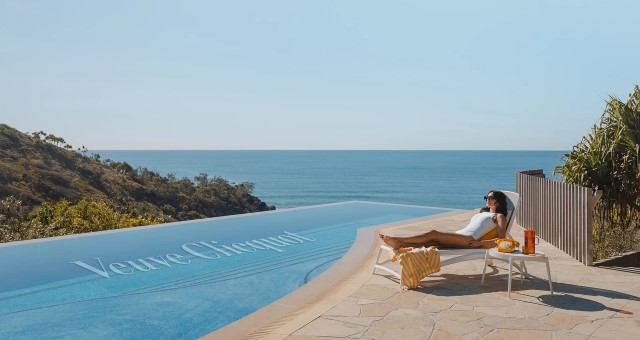Among the latest in a string of impressive marketing moves by the team behind the highly anticipated Barbie movie was the recent arrival of an entirely pink mansion in Malibu in the style of the iconic Barbie Dreamhouse, which made headlines globally.
While the temporary accommodation offering is purely a promotional tool for the movie, it highlights the power of a major brand and how accommodation providers can leverage this through collaboration.
A crossover between consumer brands and hotels has been on the rise in recent years, particularly when it comes to designer brands with a cult following.
“The concept of brand partnerships and pop-up stays isn’t new in the world of hotels,” says Abound Studio Founder, James Huntly.
“We’ve seen successful examples from the likes of Italian fashion house Valentino, which collaborated with Palazzo Avino to bring its iconic style and glamour to the Amalfi Coast with a beach club takeover.
“The ‘Dioriveria’ pop-up blends ‘fashion and fun’ by bringing Dior’s trademark style to the landmark Beverly Hills Hotel, with a brimming boutique, sanctuary spa and surf inspired Cabanas.”
In some cases, the designer behind the brand is the focus of an accommodation offering.
The General Store Partner and CEO, Matt Newell, points to the opening of The Karl Lagerfeld Hotel in Macau earlier this year, as part of The Grand Lisboa Palace Resort.
The German designer was a notable figure in the world of fashion having worked with top houses such as Balmain and Chloe, and as creative director of Chanel.
“It is the only hotel in the world that was completely designed by the late designer, who died four years before it opened,” he said.
“It is jam-packed with personal details that were close to his heart, like the horizontal stacks of 4,000 books in the lobby that he selected himself (Karl had a personal collection of 300,000 books in his own home).”
Even champagne brand Veuve Clicquot introduced a luxury accommodation in both Byron Bay and Noosa over the last two years.
“For two weeks, guests can enjoy a luxurious stay in a state-of-the-art property with their own private butler and chef, while engaging in immersive experiences like an interactive dining experience, massages and poolside breakfasts,” Newell said of Hotel Clicquot.
Huntly says it’s an exciting time to explore opportunities to bring a brand to life particularly as brands look to find more meaningful ways to connect with customers and grow a likeminded community.
“Perhaps that’s why we’re seeing a rising wave of luxury brands such as Louis Vuitton, eye the opportunity to move into hotels and do so for the long-term,” he said.
“The luxury fashion brand noted in a recent interview that it plans to reimagine its iconic headquarters into the brand’s first hotel and cultural hub.
“After all, inviting customers to ‘live and sleep with the brand’ has got to be the ultimate brand experience and the benchmark for true ‘lifestyle’ brands.”
‘Unique opportunity’
Newell says the right brand activation with the right partner has the potential to create deeper connections with guests throughout their stay.
“Hotels have a unique opportunity to build lasting connections with their guests – after all, this is a captive audience who are immersed within the property for a minimum of one night,” he said.
His advice for hoteliers looking to explore consumer brand partnerships is to seek out a complementary brand that amplifies your core proposition and point of difference.
“Hotels may be inspired to look for cultural references that are relevant to their brand and customer base, but the execution and approach may be different,” he said.
“For example, your hotel’s point of difference might be centred on French luxury or American art hotels. Wouldn’t it be interesting if vibrant Australian designer Camilla collaborated with a luxury beachside resort? Or if Hennessy co-created a whiskey room at the chic Ace Hotel, then created mini whiskey bars in every room?
“It’s important to find authentic brand partnerships, whether they’re just temporary moments in time or perennial and fundamental to your brand proposition.”
Huntly believes that in order to execute a successful brand hotel collaboration, it must have a ‘purpose, values led philosophy’.
“[It must be] a meeting of minds; one of shared values, reciprocity, and collaboration. An appreciation of both style and substance,” he said.
“The most memorable hotel brands look beyond providing a good bed for the night, they cultivate culture, community, and discovery. They weave it across all layers of a brand’s design and experience, to build something bigger and more meaningful that lives beyond the moment and the stay.”




